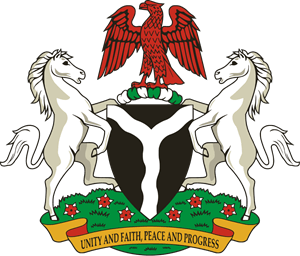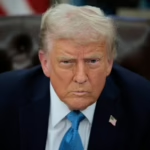The Nigerian government has raised concerns over how global oil market instability, largely linked to the recent actions of former U.S. President Donald Trump, is affecting the country’s economy.
On Tuesday, the head of the Nigerian Midstream and Downstream Petroleum Regulatory Authority, Farouk Ahmed, explained that Nigeria is facing tough times because of the way Trump’s trade policies are influencing global oil prices.
He spoke during a press event at the Aso Rock Villa in Abuja.
According to him, unpredictable decisions coming from the U.S., such as the sudden imposition or reversal of tariffs, especially those targeting major economies like China, are creating confusion in international markets.
This has led to quick changes in prices, including a recent drop in oil from $73 to $60 per barrel in just one day, making it hard for Nigeria to plan its finances.
Ahmed pointed out that these shifts are not only affecting foreign investors but are also hitting Nigeria hard, since the country depends mostly on oil sales for its income.
While cheaper fuel might seem like good news for local buyers, he warned that it also means Nigeria is earning less from its main export.
He also noted that other local issues are making things worse.
Problems like pipeline damage and reduced oil production are cutting into the nation’s output, which OPEC recently reported has dropped to around 1.4 million barrels per day.
The American push for more oil exploration at home and the aim of reducing global crude prices below $50 a barrel are also working against oil-reliant countries like Nigeria.
Ahmed stressed that many traders and investors now prefer short-term deals, avoiding long commitments because they are unsure of what might change next.












Leave a Reply